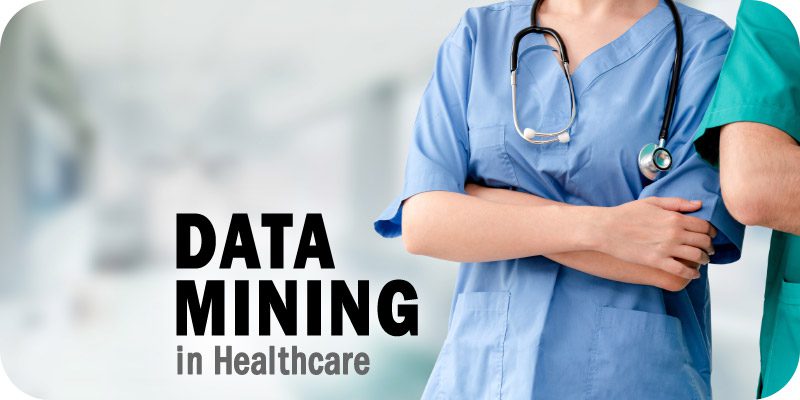The Role of Data Mining in Healthcare & Why it Matters: A Brief


Solutions Review’s Tim King offers a brief on the topic of data mining in healthcare, what it means in practical terms, and why it’s important.
Data mining plays a crucial role in healthcare by enabling the extraction of valuable insights and knowledge from large and complex healthcare datasets. It involves applying advanced analytical techniques and algorithms to uncover patterns, relationships, and trends within healthcare data. The overall role of data mining in healthcare can be summarized as follows:
Data Mining in Healthcare
- Clinical Decision Support: Data mining techniques can analyze electronic health records (EHRs), patient data, and medical literature to assist healthcare professionals in making more informed and evidence-based clinical decisions. By identifying patterns in patient outcomes, treatment responses, and disease progression, data mining can help predict risks, optimize treatment plans, and improve patient outcomes.
- Disease Surveillance and Outbreak Detection: Data mining enables the identification of disease patterns and outbreaks by analyzing large-scale epidemiological data. By examining symptoms, geographical locations, demographic factors, and environmental data, data mining can help in early detection, monitoring, and control of infectious diseases, enabling timely interventions and public health responses.
- Predictive Analytics for Patient Management: Data mining algorithms can predict the likelihood of specific health conditions or events based on patient data and medical history. By analyzing factors such as demographics, genetics, lifestyle, and medical records, data mining can assist in risk stratification, early disease detection, and personalized treatment planning, leading to proactive and preventive care.
- Healthcare Fraud Detection: Data mining techniques are employed to identify patterns of fraudulent activities within healthcare systems, such as insurance claims fraud, billing abuse, and inappropriate prescribing practices. By analyzing large volumes of healthcare claims data and detecting anomalous patterns, data mining can help detect and prevent fraudulent activities, reducing financial losses and protecting healthcare resources.
- Health Research and Knowledge Discovery: Data mining enables researchers to discover new insights, relationships, and trends within healthcare data. By analyzing large-scale clinical trials, genomic data, and scientific literature, data mining techniques can uncover new biomarkers, identify genetic risk factors, support drug discovery, and contribute to medical research advancements.
- Healthcare Resource Management: Data mining can optimize healthcare resource allocation, including hospital bed management, staff scheduling, and inventory control. By analyzing historical data, patient flow patterns, and resource utilization, data mining can help improve operational efficiency, reduce costs, and enhance resource planning in healthcare facilities.
- Patient Segmentation and Personalized Medicine: Data mining techniques can segment patients into distinct groups based on similarities in demographics, genetic profiles, medical histories, and treatment responses. This segmentation enables personalized treatment strategies, targeted interventions, and precision medicine approaches, improving patient outcomes and reducing adverse events.
Overall, data mining in healthcare plays a vital role in enhancing clinical decision-making, improving patient care, enabling early disease detection, optimizing resource allocation, and advancing medical research. It has the potential to transform healthcare systems by leveraging the power of data to drive evidence-based practices, improve efficiency, and ultimately improve patient outcomes.
The role of data mining in healthcare is significant due to several key reasons:
- Improved Patient Outcomes: Data mining allows healthcare professionals to extract valuable insights from large and diverse healthcare datasets. By identifying patterns, trends, and risk factors, data mining helps in early disease detection, personalized treatment planning, and proactive interventions. This leads to improved patient outcomes, reduced morbidity and mortality rates, and better overall healthcare management.
- Enhanced Evidence-Based Medicine: Data mining supports evidence-based medicine by providing empirical evidence derived from real-world patient data. It helps identify treatment effectiveness, compare different interventions, and uncover correlations between patient characteristics and outcomes. This evidence supports healthcare providers in making informed clinical decisions, improving treatment protocols, and optimizing healthcare delivery.
- Efficient Resource Allocation: Healthcare resources are often limited and need to be allocated effectively. Data mining assists in optimizing resource allocation by analyzing historical data on patient flow, resource utilization, and demand patterns. It enables healthcare organizations to forecast patient volumes, allocate staff and facilities appropriately, and reduce unnecessary costs while ensuring efficient and effective healthcare service delivery.
- Early Disease Detection and Public Health Surveillance: Data mining plays a crucial role in early disease detection and public health surveillance. By analyzing data from various sources, such as electronic health records, health surveys, and environmental data, data mining can identify patterns and trends indicative of disease outbreaks or emerging health risks. This information enables public health authorities to take timely actions, implement targeted interventions, and prevent the spread of diseases.
- Healthcare Fraud Detection: Data mining techniques are instrumental in detecting healthcare fraud and abuse. By analyzing vast amounts of healthcare claims data, data mining algorithms can identify suspicious patterns, anomalies, and fraudulent activities. Detecting and preventing healthcare fraud not only saves substantial financial resources but also helps maintain the integrity of healthcare systems, ensuring that resources are appropriately allocated to those in need.
- Advancement of Medical Research: Data mining supports medical research by enabling the discovery of new insights, associations, and trends within healthcare data. Researchers can analyze large-scale datasets, such as clinical trials data, genomic data, and medical literature, to identify new biomarkers, study treatment responses, and improve understanding of disease mechanisms. These discoveries contribute to medical advancements, innovation, and the development of new therapies and interventions.
- Data-Driven Decision-Making: The healthcare landscape generates enormous amounts of data from various sources, including clinical records, patient monitoring devices, and genomic sequencing. Data mining helps unlock the potential of this data by extracting meaningful insights and supporting data-driven decision-making. It enables healthcare providers, policymakers, and researchers to harness the power of data to make informed decisions, improve processes, and drive positive healthcare outcomes.
The role of data mining in healthcare is vital as it enhances patient outcomes, supports evidence-based medicine, optimizes resource allocation, facilitates early disease detection, combats healthcare fraud, advances medical research, and promotes data-driven decision-making. By leveraging the wealth of healthcare data, data mining empowers healthcare systems to provide more efficient, effective, and personalized care while improving population health.































